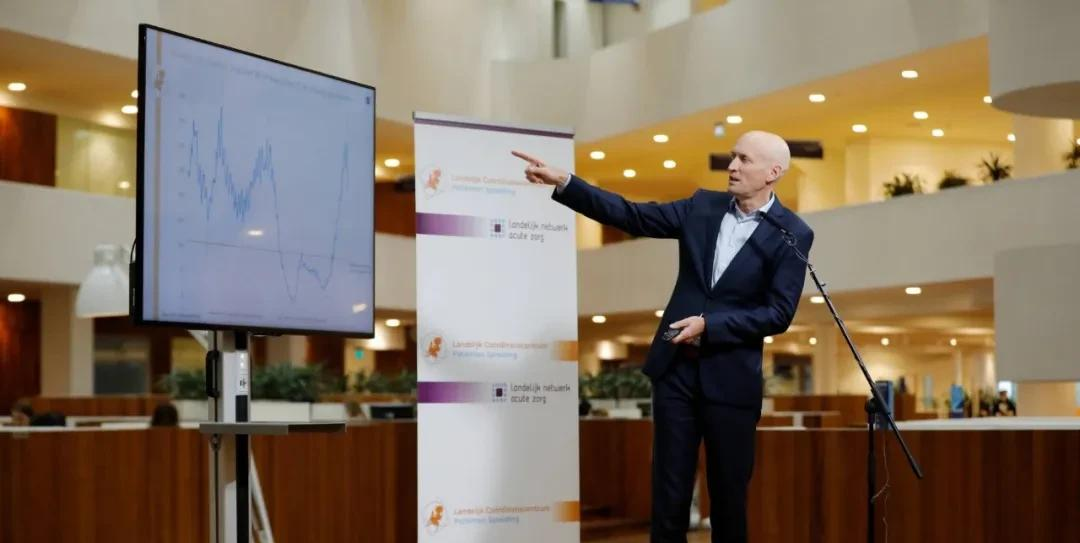The new Dutch health minister-designate will be ernst Kuipers, a 62-year-old expert.
He was one of the incoming ministers and had no political experience, that is, no experience as a politician. In the nearly two years since the coronavirus pandemic has continued, Coopers has certainly been put to the test in the world of political games. As one of the most important healthcare representatives, as a member of the pandemic crisis response team OMT, he often advises the cabinet and also appears in the media, so he is one of the familiar faces of the Dutch for more than a year.
In addition to his decades of experience in health care, this skill is sure to come in handy when representing the Democratic Six-Six Party D66 as minister of health, welfare and sports.
But Coopers may also find it more comfortable to stand on the shore than in the cab.
After speaking with cabinetist Lutte, Coopers said he wanted to develop a long-term strategy for COVID-19 and also wanted to focus on maintaining access to health care. He added, "The healthcare system was already under pressure before the COVID-19 pandemic."
This has been expressed many times in his previous speeches.
Coopers joined the cabinet on behalf of the Democratic Six-Six Party, but he was invited to join the party shortly thereafter. Still, he said he did provide a lot of input for the nursing part of the Democratic 66 election platform.
As Chairman of the Board of Directors of Erasmus MC of Erasmus ROtterdam and Chairman of the Dutch National Acute Care Network, he was responsible for coordinating the distribution of COVID-19 patients in Dutch hospitals, which made him, together with the President of the Dutch Intensive Care Association and colleague Diederik Gommers of University Hospitals, a suitable person to explain the healthcare situation during the outbreak.
They often do this. Since the pandemic crisis, they have appeared frequently on different TV talk shows, sometimes appearing on their own and sometimes at the same time.
Their appearances in the media are not only public-facing, but sometimes political initiatives, such as the news talk show Nieuwsuur at the end of 2020. At the time, the vaccination campaign had just begun, and in the order of injections determined by Minister De Jonge, basic health care providers ranked fifth.

Gomez and Coopers also said that was unacceptable because hospitals were able to vaccinate their employees themselves. De Jonge initially said he couldn't change the order, but he gave up a few days later. Against success!
Coopers has more often criticized the government's covid-19 policies. For about a year and a half, when talking about epidemic policy in Nieuwsuur, he said that the Netherlands should not only focus on the number of hospitalizations, but on the number of infections, and should focus on more testing capacity, "so that your workload will be much less." ”
In April 2021, Coopers concluded that the controversial and far-reaching curfew had no effect on hospitalizations at all, as if none of these measures were for health care.
Still, other experts have reacted critically, like Amrish Baidjoe, a field epidemiologist, who said measuring the effects of simultaneous measures is so complex that a graph of hospital occupancy rates before and after curfews isn't enough. According to Badjow, Coopers had to avoid forecasts more often, as he called them "more variable than the weather forecast."
Specialist in internal medicine specializing in gastrointestinal diseases
Coopers' spokesman, Mariël Croon, tweeted coopers' academic achievements impressively, and he was not essentially an epidemiologist. As a scientist and physician, Coopers earned him a reputation and status with his expertise in stomach, gut and liver diseases.
He received his PhD in research on the development of colorectal cancer and later became Professor of Gastroenterology and Specialist Head of Internal Medicine at erasmus University Hospital. Thanks in part to Coopers, the Netherlands began a nationwide bowel cancer population screening. Now he is an administrator, a cabinet minister.
The conversion of roles
His colleagues in the newspapers described him as bright-headed, loyal, reliable and strategic, but the position of minister was different from that of managers in hospitals. In The Hague, Coopers not only has to control wave after wave of infections, he may also have to deal with the turbulent waves of political storms.
He will soon have to defend the cabinet's policies on the basis of compromise, which involve far more interests than health care. Furthermore, he has no room to say that he personally prefers different decisions, such as turning to focus on infections rather than hospitalization. He will have to digest and accept all this.
Peter van der Voort, a critical care physician at UMCG at Groningen University Hospital and a member of the first house of the Democratic Six-Six Party, wondered how Coopers could assert his position in the new cabinet on the talk show Beau: "If ministers are replaced by their closest advisers in the crisis of the pandemic, it is impossible to expect that the policy will change. ”